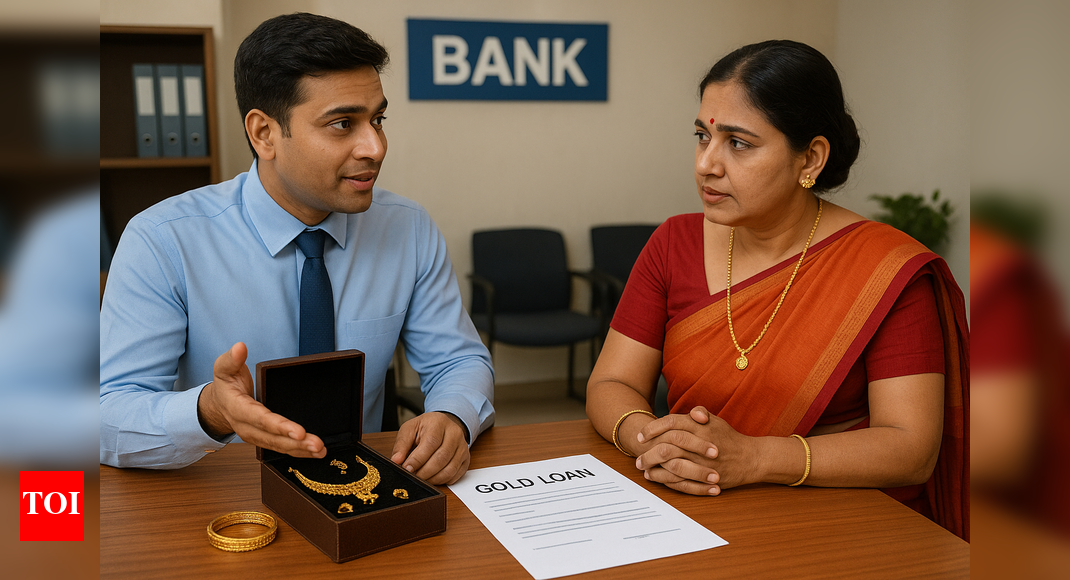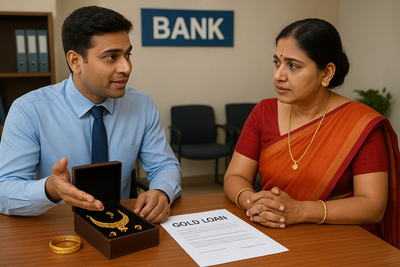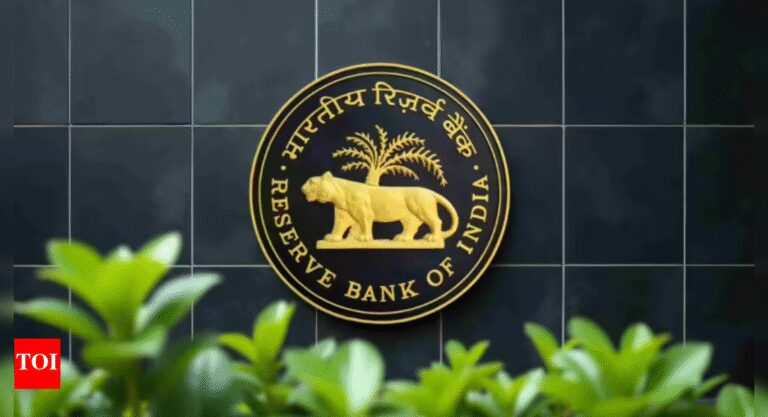
Gold loans have become a go-to option for anyone needing quick funds during financial challenges and uncertainties.Whether it’s paying for education, expanding a business, covering personal or medical costs, renovating a home, gold loans offer a convenient solution. With minimal paperwork and speedy access to cash, they are an attractive option, however, many people still don’t fully understand how these loans work or how to get one.
How do gold loans work?
Gold loan is a simple and often quick process to arrange funds by pledging your gold jewellery in exchange. The amount that the bank will offer you depends on the purity and weight of the jewellery, according to the Bajaj Finserv website.In India, interest rates on gold loans are not the same everywhere. They change depending on the lender, the borrower’s profile, the loan amount, the tenure, and the repayment option.
Here are the latest interest rates — October 2025
| Interest rates on gold loans ( %) | |
| Bank | Rates |
| INDIAN: PUBLIC SECTOR BANKS | |
| State Bank of India | 10.00% |
| Union Bank of India | 9.65% |
| Punjab National Bank | 8.35% |
| Bank of India | 9.40% |
| Bank of Baroda | 9.40% |
| Indian Bank | 8.75% |
| Canara Bank | 8.90% |
| INDIAN: PRIVATE SECTOR BANKS | |
| HDFC Bank | 9.30% |
| ICICI Bank | 9.15% |
| Axis Bank | 9.75% |
| IndusInd Bank | 10.50% |
| Kotak Mahindra Bank | 9.00% |
| INDIAN: NBFCs | |
| Bajaj Finserv | 9.50% |
| Muthoot Finance | 22.00% |
| IIFL | 11.88% |
| Mannapuram Finance Limited | 15.00% |
Source: ET and BankBazaar
What can be pledged as security?
Though gold loans involve pledging gold, not every item is eligible for a loan. Some banks accept only gold ornaments with a purity between 18 and 22 karat, and bank-minted coins of 24 karat weighing up to 50 grams per customer.Items like hair pins, cufflinks, gold watches, straps, idols, utensils, jewellery with more than 50% deduction, thread mangalsutra, white gold, diamond jewellery, imitation jewellery, ginni and gold bars are not accepted.According to Muthoot Finance, generally jewellery with 18–23 karat purity is accepted. Usually, plain gold jewellery without stones is preferred, though pieces with stones can also be used.
Gold that can be rejected
A gold loan application can be rejected in case it does not meet the lender’s standards of purity which is usually 18k or higher, according to Shriram Finance. Moreover, if the overall weight of the gold is not sufficient to support the loan amount requested, the application might be denied.According to Manappuram Finance Limited, lenders do not accept gold-plated jewellery or items with only a thin gold layer over another metal. The purity of gold jewellery is measured in karats. Manappuram Finance Ltd. does not accept any gold jewellery, bars, or coins that are below 18-karat in purity, the company stated on its website.
How much can you borrow per gram?
The amount you can get depends on the purity and net weight of the gold. As per the State Bank of India website, “The loan amount is determined based on the purity of gold, i.e., carats (22, 20, 18) and net weight. Loans are not offered against primary gold, i.e., 24-carat gold bars and biscuits.”
Things to keep in mind
Low interest rates: A high rate of interest will lead to a higher repayment amount if the loan is taken for a long time. Look for lenders offering a low interest rate and better facilities.Know the market value: Before taking a gold loan, find out the current market value of your gold. This will help you borrow only what you need. Keep an eye on the per gram gold rate, as it directly affects the amount you can get.Multiple repayment options: Look for lenders that offer flexible repayment options and choose one that suits your financial situation. You can opt to repay the loan bi-monthly, quarterly, half-yearly, or annually, depending on what works best for you.Security measures: To make sure that your gold jewellery is safe, look out for options offering insurance against theft and misplacement.
Repayment options
Gold loan repayment is flexible and depends on the lender’s policies. Here are some of the options available in the market:Pay interest as EMI & principal laterUnder this plan, borrowers pay only the interest on a monthly EMI basis, while the principal amount is repaid in a single payment at the end of the loan tenure. Many prefer this option as it allows them to manage cash flow without worrying about the principal during the loan period, according to HDFC Bank. However, one downside is that the overall interest rate is higher, according to Shriram Finance.Make partial paymentsThis option allows borrowers to make payments towards interest and principal as per their convenience, rather than following a fixed EMI schedule. If the principal is paid off early, the total interest, which is calculated daily on the outstanding amount, decreases, helping borrowers save significantly on interest.Bullet repaymentIn a bullet repayment plan, both interest and principal are repaid in one single payment at the end of the loan tenure. No monthly EMIs are required, though interest is calculated monthly. This is ideal for borrowers who prefer to repay the full amount at the end of the loan term. However, it has the highest interest cost according to the Shriram Finance website.Regular EMI optionThis plan suits salaried individuals with a fixed monthly income. Monthly EMIs include repayment of both principal and interest. The structured nature of this option often leads to quicker loan approval for salaried borrowers.Partial prepay This option allows you to pay the principal amount anytime before the maturity period as a lump sum amount or in multiple payments. It lowers the overall interest rate and the maximum repayment period for gold loans.Prepay interest upfrontThis option allows you to pay the interest as a lump sum amount upfront and pay the principal amount at maturity. This saves the interest cost as compared to bullet repayment. However, it needs an already large amount ready upfront to pay for the interest.







